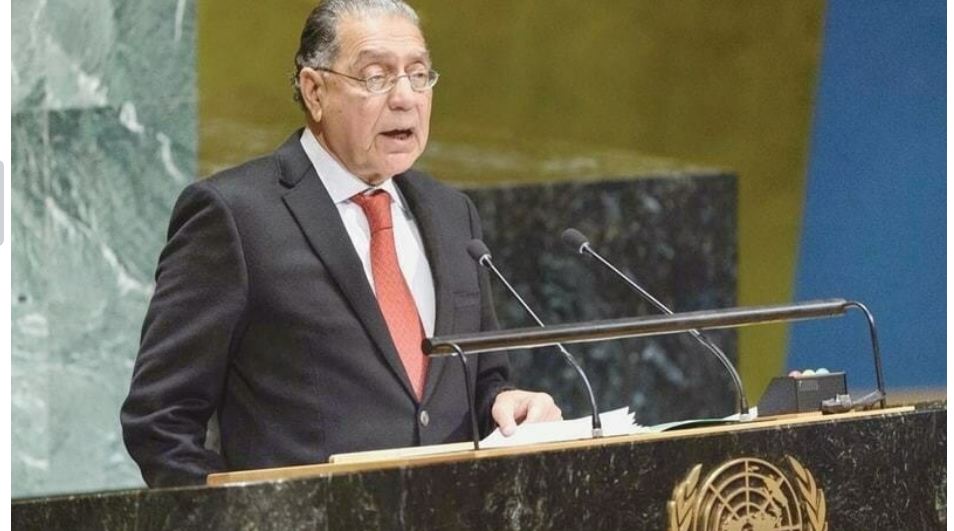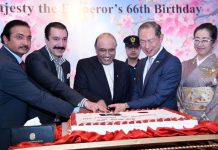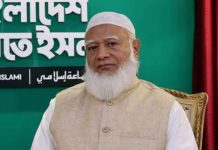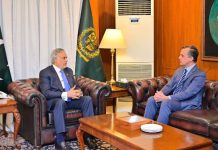ISLAMABAD: Pakistan has called on the UN to step up its efforts and urgently resolve the Kashmir dispute in a bid to halt Indian atrocities in the disputed territory and dispel a threat to regional and global peace and security.
“Peace and security must remain at the core of the functions of the United Nations,” Ambassador Munir Akram told the UN General Assembly on Friday while commenting on UN Secretary General Antonio Guterres’ report on the organisation’s work.
“We urge the Security Council (SC) and the secretary general to exercise their considerable authority to promote an early and peaceful resolution of the Jammu and Kashmir dispute and to end the Indian reign of terror against the Kashmiri people,” the Pakistan envoy said in his speech.
The UN and the secretary general, he said, could “do much more” to address “peace and security threats by fully using the authority provided by the United Nations Charter, such as in Article 99, and by taking action in the General Assembly if the Security Council is unable to do so”.
The “primary threat” in South Asia, the Pakistan envoy said, was posed by the Kashmir dispute and India’s attempt to annex and transform the Muslim majority state into a Hindu majority territory, in grave violation of UNSC resolutions that promised Kashmiris their right to self-determination through a UN-supervised plebiscite.
On August 5, 2019, India’s ruling Bharatiya Janata Party (BJP) had revoked occupied Kashmir’s special status by repealing Article 370 of the constitution. The move allowed people from the rest of India to have the right to acquire property in occupied Kashmir and settle there permanently.
Kashmiris, international organisations and critics of India’s Hindu nationalist-led government see the move as an attempt to dilute the demographics of Muslim-majority Kashmir with Hindu settlers.
Over the past three years, Pakistan has been raising voice against the move and Indian atrocities in the valley.
Detailing India’s “extensive illegal actions”, which Ambassador Akram condemned this time as well, he urged the UNSC and the UN chief to promote an early, peaceful end to the dispute.
He cited the rise of racial and religious hate and violence, with Islamophobia among its gravest manifestations, notably as characterised by lynching and calls for genocide of Muslims in India.
“The worst manifestation of Islamophobia is the officially-inspired campaign of Hindutva adherents in India against Muslims,” he said.
So far, the Pakistan envoy added, there had been no accountability for India’s crimes.
“Draconian Indian laws provide complete impunity to the 900,000 troops India had deployed in occupied Jammu and Kashmir,” he said, condemning the rising “harassment, illegal arrests and registration of fake criminal cases” against journalists and civil society activists, such as Khurram Pervez, in occupied Kashmir.
The recent attack and ban on the Kashmir Press Club, he said, was another manifestation of India’s entrenched use of brute force and coercion to silence all those who raised their voice against its “criminal and genocidal acts” in occupied Kashmir.
Ambassador Akram also drew attention towards the recent warning by Dr Gregory Stanton, head of the Genocide Watch — a global organisation dedicated to the prevention of genocide — of a genocide against Muslims in India.
“We call on the secretary general and the United Nations to take decisive steps to combat Islamophobia and to prevent the danger of genocide against the Muslims of India,” Ambassador Akram said.
At the outset of his address, the Pakistan envoy welcomed the UN’s mobilisation of humanitarian and other assistance for Afghanistan, calling its flash appeal for aid to Afghanistan in September last year and the $5 billion appeal made earlier this month timely and essential.
“Similarly, the United Nations role in peacekeeping is a major success and Pakistan will remain a steadfast partner in ensuring the effectiveness of such operations, notably the United Nations Military Observer Group for India and Pakistan, stationed in the disputed Jammu and Kashmir region,” the envoy said.
He welcomed the secretary general’s call to address inequality and promote universal vaccination against Covid-19 on an emergency basis and also endorsed the UN chief’s call to restructure the global financial architecture and provide financial resources to help developing countries in recovering from the pandemic.

















